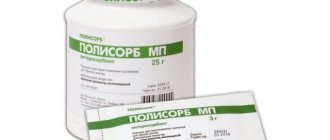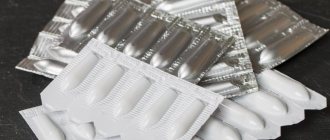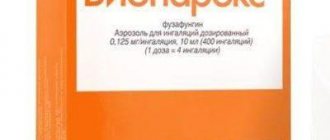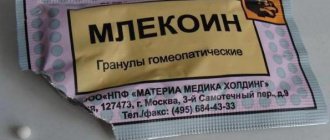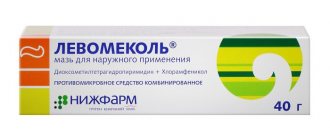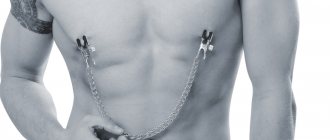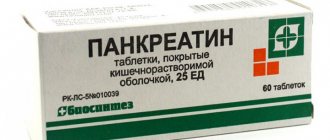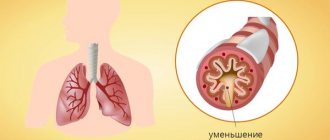Acute respiratory infections are among the diseases to which nursing mothers are most susceptible, since their respiratory system is under increased stress - a lot of oxygen is needed to produce milk. Colds are accompanied by fever, sore throat, nasal congestion, and general weakness.
Active substances contained in medications can pass into breast milk and negatively affect the baby's body. In order not to interrupt feeding during treatment, medications that are safe for the child should be used to relieve symptoms of the disease.
Should I stop breastfeeding?
The development of respiratory disease in the mother occurs within two to three days after the virus enters the body. During this time, the nursing mother’s body manages to release into breast milk the causative agent of the disease, antibodies that suppress its development, as well as special enzymes that will help the baby’s body independently produce the necessary antibodies.

By the time the mother shows symptoms of acute respiratory infections, the baby has become infected or has become immune to the disease. To alleviate the course of the disease in a nursing mother, immediately after the onset of cold symptoms, it is recommended to use drugs that stimulate the immune system, in particular, Viferon suppositories.
Breastfeeding is not interrupted during illness - this allows the baby to receive adequate nutrition and increase its immunity. Weaning a sick or healthy baby from the breast will negatively affect his condition, prolong the mother’s treatment time, and can serve as an impetus for the development of complications.
There are no special feeding rules for acute respiratory infections - milk does not need to be expressed, especially since it should not be boiled, worsening its nutritional and medicinal properties. A break in breastfeeding is provided only when a doctor prescribes antibiotics or other potent drugs that can negatively affect the baby’s health.
To maintain lactation, milk is expressed and poured out, and the child is temporarily transferred to formula feeding.
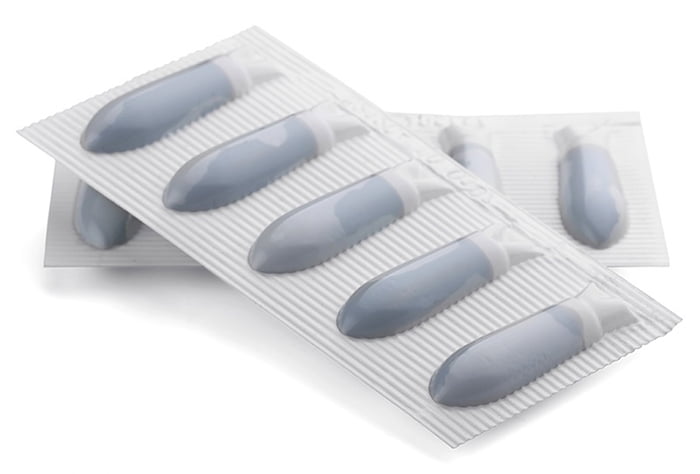
Colds - should I stop breastfeeding?

During breastfeeding, milk production requires a large supply of oxygen to the body. But it happens that some diseases prevent its full entry into the body, since the respiratory system at this time is subjected to severe stress.
These are symptoms such as:
- cough;
- runny nose;
- labored breathing;
- sore throat.
Here lies the danger of difficulty producing milk and the risk of infecting the child with a cold.
Within two to three days, the respiratory disease develops and the virus enters the body. At the same time, the young mother’s body produces the pathogen, antibodies and special enzymes into the milk, which will allow the baby to independently obtain the necessary antibodies. There is no need to interrupt breastfeeding; on the contrary, it is better to continue it. This way, the child will receive everything for the subsequent fight against colds and to increase immunity.
There are no strict rules for nursing mothers during acute respiratory infections and other viral diseases. There is no need to switch to pumping; under no circumstances should you boil breast milk - it will lose all its wonderful properties. Now, if the doctor prescribes antibiotics or other medications that can adversely affect the baby’s condition, breastfeeding should be suspended.
In this case, the mother will have to express milk in order to return to feeding the baby later, when the disease subsides. In the meantime, he will temporarily eat formula in accordance with his age. If at the same time the mother has problems with the skin around the nipples, she should consult a doctor in order to be able to treat it with Viferon ointment while the baby is not breastfeeding.
Even if you are clearly confident in the diagnosis, you should definitely seek advice from your local physician - he will recommend the best treatment and tell you which form of medication to use. The doctor will also refer you to specialists if other health problems described above arise.
A person without special education cannot diagnose himself or others and advise treatment. Self-medication is not without health consequences. Remember, not only the young mother is at risk, but also her baby.
Application of Viferon
The number of drugs approved for breastfeeding a baby includes Viferon, which is available in the form of ointments and suppositories. The drug helps to increase the body's defenses and cope with the disease in a short time.
Infection with a respiratory virus indicates reduced immunity. Breastfeeding women are at risk for diseases of the upper respiratory tract, since their body is exposed to great stress and is not always able to resist the penetration of the virus.
Without encountering serious opposition, the virus actively multiplies in the body. When the first signs of ARVI occur, it is important to immediately begin therapy using fast-acting medications that are safe for mother and child:
- The nasal cavity is washed with saline or sea salt solution for the purpose of disinfection;
- elevated body temperature is reduced by using medications containing paracetamol or ibuprofen;
- Viferon is used to increase immunity;
- Drinking plenty of warm drinks compensates for the loss of fluid by the body.

Viferon suppositories are prescribed as a drug for the complex treatment of ARVI and influenza. In addition, this remedy can be used in the treatment of:
- viral respiratory diseases complicated by bacterial infection;
- herpes simplex;
- ENT infections;
- urogenital tract infections;
- chronic and acute hepatitis, etc.
Viferon is characterized by an immunomodulatory effect, suppresses the activity of viruses, and prevents the proliferation of cellular elements during inflammation. Due to antioxidants (vitamins E and C), the effect of free radicals on tissue cells is reduced, due to which the active antiviral activity of interferon is enhanced several times.

The drug does not suppress the body's production of its own interferon and is not addictive. This allows Viferon suppositories to be used for the treatment of acute conditions, and the gel for the prevention of ARVI, including in nursing mothers. The gel is applied to the mucous membranes of the nasal cavity, where it creates a thin film - an impenetrable barrier for respiratory viruses.
Viferon has an immunomodulating effect and is very poorly absorbed by the body. The components of the drug practically do not pass into breast milk, so lactation is not a contraindication to its use.
The good immunity of a nursing mother is the key to the health of her baby, who, with milk, receives all the necessary components to strengthen the body’s own defenses.
During pregnancy and while breastfeeding, the mother’s body works completely differently than before carrying the baby. The load on all organs and systems increases, the woman becomes especially sensitive to medications and tries to take them less. But there are still cases when it is impossible for a mother who has recently given birth to do without medication. How to make the right choice and not harm the child?
According to statistics, about 80% of women worldwide use medications during pregnancy and lactation. Taking into account such serious indicators, the priority area of activity of the European Medicines Agency in the field of studying the safety of medicines in the European Union and the United States includes determining the safety of medicines for mothers and children. When choosing a drug during lactation, one of the most important principles is the maximum possible safety of the drug. Among the generally accepted rules for prescribing medications to a nursing mother, aimed at eliminating the fatal risk, is usually a reduction in the dosage of the drug to the lower limit of the therapeutic corridor.
Viferon suppositories during lactation
Respiratory disease usually develops within two or three days after the virus enters the body. This is more than enough for the pathogen and antibodies that can suppress its further development to penetrate into the mother’s milk product. Special enzymes also enter the child’s body along with food, helping him to independently fight the disease.
By the time obvious symptoms of an acute respiratory disease begin to appear, the baby has time not only to become infected, but also to develop immunity. In order to alleviate the development of the disease and speed up the healing process, nursing mothers are recommended to use medications that stimulate the immune system . Viferon is one of these drugs.
Photo gallery: Viferon candles
Viferon stimulates the immune system
Viferon is a drug that is approved for use during lactation
Viferon is used for complex therapy of influenza and respiratory viral infections
Indications for use during breastfeeding

Thanks to Viferon, the body is able to quickly cope with a viral infection
Viferon is a medicine that is approved for use during lactation. It helps activate the protective function. Thanks to the action of Viferon suppositories, the body is able to cope with a viral infection in the shortest possible time.
Nursing mothers are at risk for upper respiratory tract diseases. The female body is weakened after the birth of a child, and the process of milk formation takes a lot of energy. The protective system during lactation is not always able to resist the penetration of the virus into the body. If the infection does not meet obstacles, then it begins to actively progress and multiply.
IMPORTANT: When the first symptoms occur, therapy must be started immediately. Quick-acting medications that are safe for mother and baby will help get rid of the virus.
Viferon suppositories are prescribed as a means for the combined treatment and prevention of influenza, as well as respiratory viral infections. This drug may also have a beneficial effect on the following ailments:
- viral diseases that are complicated by pathogens (microorganisms) of a bacterial nature,
- herpes,
- infections of the throat, ear and nose,
- infections of the urogenital tract,
- acute or chronic hepatitis.
Viferon suppositories have an immunomodulatory effect. They extinguish the activity of the virus and prevent it from multiplying during the inflammatory process. suppositories are practically not absorbed by the body, so the drug does not pass into breast milk.
The drug does not affect the production of interferon by the body's cells (proteins that can fight viruses and infections) and is not addictive
Table: diseases for which Viferon can be used
| Release form | Usage |
| Gel | Can be used for preventive purposes of acute respiratory diseases in children, prevention of influenza, in therapy and as a prevention of recurring laryngotracheobronchitis with stenosis, therapy of cervicitis of herpetic origin. |
| Ointment | It is prescribed to a nursing mother in case of damage to the skin and mucous membranes of viral etiology. As an example: herpesvirus, papillomavirus. |
| Candles | Viferon suppositories are prescribed in combination with complex therapy in the following situations:
|
Composition of the drug
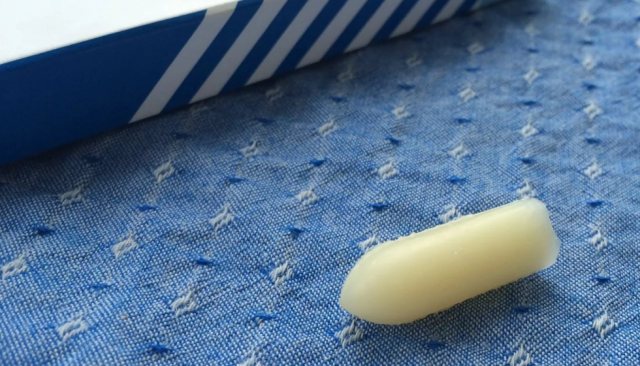
Viferon contains: recombinant human interferon alpha-a2, vitamins E and C, as well as cocoa butter
Viferon helps a nursing mother counteract viral microorganisms. It can also affect other pathogenic microorganisms. The composition of the medicine is selected in such a way that each individual component enhances the effect of the next one. The final overall result is several times stronger.
Viferon candles have the following composition:
- human interferon recombinant alpha-a2,
- vitamins E and C,
- cacao butter.
The drug contains artificially created interferon. After the virus invades the body, the cells also begin to produce this protein on their own. Interferon stimulates the defense system to more actively fight foreign bodies, and vitamins help it to be absorbed.
Interferon does not act on specific viral particles, but indirectly. It reduces the ability of microorganisms to reproduce and enhances the impact of B- and T-lymphocytes (blood cells that detect and eliminate foreign antigens, and also form immunological memory). Interferon alters the acid balance and enzyme activity in such a way that viruses are unable to exist normally within the body. The infection spreads beyond the cells, after which the immune system can easily recognize and destroy pathogens.
Vitamins C and E help strengthen the immune system. Thanks to them, a person has a chance to save even those cells that have been infected with viruses. They enhance the effect of interferon by 10–15 times. It is thanks to vitamins that you can reduce the dose of medication to a minimum.
Viferon does not show a therapeutic effect, but only helps the body independently fight infectious or viral pathogens. Thus, it can be practiced during pregnancy and lactation.
Cocoa butter is considered the optimal hypoallergenic base for suppositories. It has a temperature that is lower than the human body. This is why Viferon suppositories melt almost immediately as soon as they enter the colon. They do not cause discomfort upon insertion.
Cocoa butter is not an allergen; only powder can play this role
Video: what is the antiviral and immunomodulatory drug Viferon
Mechanics of effects on the body of a nursing mother

Interferon restores tone to a weakened body and forces the immune system to work more actively.
The dosage of the drug can be completely different. The same applies to the duration of treatment. The duration of the procedures will depend on the degree of development of the disease. The appointment must be made by a doctor. Thanks to Viferon suppositories, you can easily restore tone to a weakened body and make the immune system work more efficiently. Interferon is absolutely safe for both mother and baby. Most often, this drug is prescribed as part of a complex, in parallel with other medications that help to finally get rid of the disease.
Before going on sale, the drug was subjected to various studies and tests. They confirmed the excellent tolerability of the drug and its effectiveness. The principle of action of the drug is as follows:
- Human interferon alpha-2b demonstrates activity against pathogenic bacteria. It has antiviral and immunomodulatory effects,
- Vitamins C (ascorbic acid) and vitamin E (-tocopherol acetate) reduce the permeability of cell membranes, eliminate the process of inflammation and accelerate the regeneration of cellular tissues,
- Cocoa butter brings all the elements together and makes them work in tandem. It contains unsaturated fatty acids and flavonoids, which guarantee safe and rapid absorption of the drug.
Side effects and contraindications

In rare cases, Viferon can cause an allergic reaction and burning sensation in the anus
Nursing mothers need to be careful about the medications they use to eliminate certain symptoms. You should immediately pay attention to the presence of side effects. Among all the drugs that contain interferon, Viferon is the safest. The manufacturer assures that there are no side effects. Even over a long period of use, the body will not begin to produce antibodies that can have a negative effect on the body.
A nursing mother should understand that each child is individual and may react differently to individual components of the drug. In some cases, Viferon suppositories can cause an allergic reaction. This is possible in case of personal intolerance to the components. It usually appears as itching or a rash. There may also be a burning sensation in the anus when inserting a suppository. Discomfort in the rectal area often occurs. Mothers who are sensitive to cocoa butter should be wary of this drug. There is no information about overdose, but it is not advisable to exceed the dose recommended by a specialist.
In case of negative manifestations, in any form, it is better to refuse to use the drug.
Is it possible to use VIFERON suppositories while breastfeeding?
But what to do if a nursing mother is overtaken by a viral disease that requires drug treatment, and it is undesirable to interrupt feeding the child? The same acute respiratory viral infections in the form of flu and colds are quite common in everyone, including women who have recently given birth. In this case, you should pay attention to the antiviral drug VIFERON, which is available in the form of suppositories, ointment or gel. You can use VIFERON when feeding an infant. The drug has a dual effect - it helps block the virus and restore immunity. The original formula of the drug is a combination of interferon alpha-2b and highly active antioxidants (vitamins C and E). The drug has a universal effect against a wide range of viruses and other pathogens.
The drug carefully takes care of women’s health and allows them not to interrupt the feeding of the child during the course of treatment. It is advisable to start using suppositories when the first signs of the disease appear, but at a later date their use will be justified.
Instructions and dosages of the drug VIFERON Suppositories for lactation
For ARVI and influenza, it is recommended to use the drug VIFERON Suppositories when breastfeeding at a dosage of 500,000 IU for 5 days. For herpes infection - at a dosage of 1000,000 IU for 10 days. Urogenital infections, including human papillomavirus infection, require treatment with the drug at a dosage of 500,000 IU for 5-10 days.
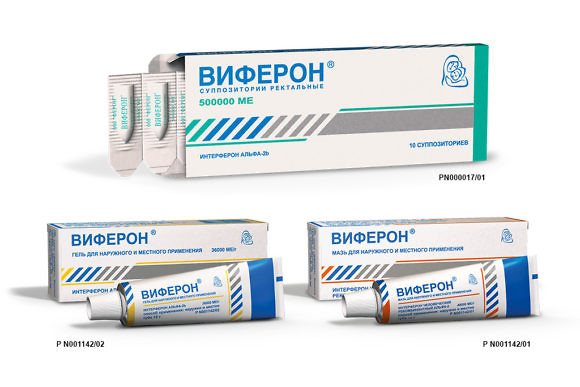
Dosage for women while breastfeeding
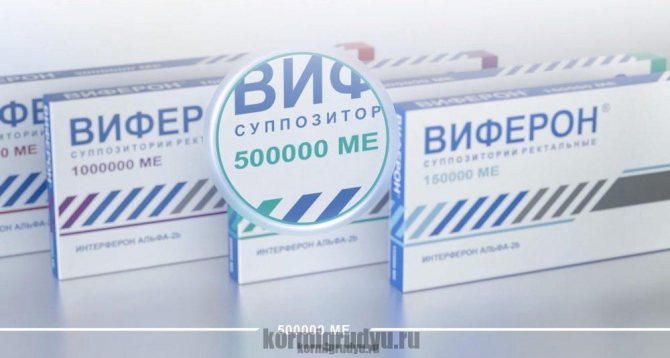
Viferon suppositories (suppositories) are prescribed to adults for infectious diseases (Table 1).
Table 1 - Diseases and doses for treatment
| Disease | Dosage | Effect |
| Runny nose | 500,000 ME | The manifestation of symptoms is reduced and the period of the disease is reduced |
| Cystitis | 500,000 ME | Used as an immunomodulator |
| Herpes | 1,000,000 ME; 500,000 ME – pregnant and lactating | Treatment begins at the first symptoms: redness, itching. Relieves irritation, shortens treatment period |
| Inflammation of the urogenital tract | 1,000,000 ME; 500,000 ME – pregnant and lactating | Inhibits the growth of the causative agent of the disease, allows you to reduce the intake of other drugs |
| Flu, ARVI | 500,000 ME | Helps normalize temperature, reduce intoxication and symptoms of the disease [5] |
| Preventative treatment | 500,000 ME | During periods of decreased immunity, they are used to maintain it [5] |
The table clearly shows that Viferon is used for various diseases in therapy, including for lactating women. The main condition is compliance with the dosage of the drug. Viferon supports the immune system and is practically not absorbed by the body.
Effect on breast milk
The components that make up the suppositories pass into breast milk in minimal quantities, so the drug is acceptable for use during lactation.
The main dosage for nursing patients is 500,000 IU, which corresponds to the content of the active substance - human recombinant interferon alpha-2b 500,000 IU.
Composition and purpose of the drug
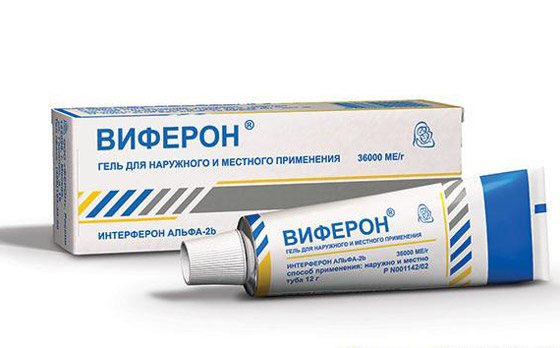
Several types of product are produced. Two are applied to the skin. We are talking about ointment and gel. The third release option is candles. They are administered rectally.
The composition of the drug is presented:
- artificially synthesized interferon alpha 2b, called recombinant;
- vitamin E;
- ascorbic acid (vitamin C).
Additional components are:
- cocoa butter;
- confectionery fat;
- sodium ascorbate.
Reception of Viferon is indicated:
- For respiratory and urogenital infections, influenza and parainfluenza, pneumonia, cytomegalovirus, enteroviral disease, herpes.
- In the comprehensive fight against viral hepatitis.
- For cirrhosis of the liver.
Advantage ointment is used on the skin, for example, for herpes, papillomavirus. The ointment can also be used vaginally by applying it to vaginal tampons.
The gel is used to treat the mucous membranes of the nose, where a film is created that represents a barrier to the penetration of pathogens.
Suppositories can be used both rectally and vaginally. The production of candles is carried out in different dosages (150,000, 500,000, 1,000,000, 3,000,000 international units).
Viferon is also used to prevent viral diseases. This is relevant in case of direct contact with an infected person during seasons of increased flu incidence.
Operating principle of Viferon
Interferon is known as an antiviral and immunostimulating agent. The effect on the body is indirect, that is, it activates internal defense, which inhibits pathogenic agents. The action of the medicine is as follows:
- Increasing the activity of cellular enzymes makes it impossible for pathogens to reproduce. In this regard, the viruses die. Interferon, leaving the affected cell, notifies neighboring cells of the danger and prevents the infection from spreading.
- Interferon activates protective blood cells (macrophages), suppresses excessive proliferation and growth of malignant tumors.
- Due to the content of vitamin C in the preparation, the antiviral effect is enhanced several times.
- Vitamin E is a powerful antioxidant that helps protect the body from free radicals. The action of vitamin E is based on providing an anti-inflammatory and regenerating effect.
Due to the fact that the drug does not have a direct therapeutic effect, but indirectly by increasing the body’s own defenses, the prescription of Viferon to a nursing mother is completely justified. There is no risk of negative impact on the baby.
Taking Viferon allows you to reduce the dosages of other drugs used in treatment and shorten the duration of therapy.
Description and principle of action of Viferon
The child’s ability to independently produce the necessary antibodies manifests itself only at a more mature age. A baby under one year old does not yet have a sufficient level of immunity that would be able to protect the body from the effects of viruses and bacteria.
The medicine contains specific proteins that help the immune system resist the action of viruses.
One of the common forms of the drug used in treatment during breastfeeding is Viferon suppositories. It is easier for suppositories to deliver the active ingredients without deep penetration into the blood. When breastfeeding, the dose should be determined by a doctor.
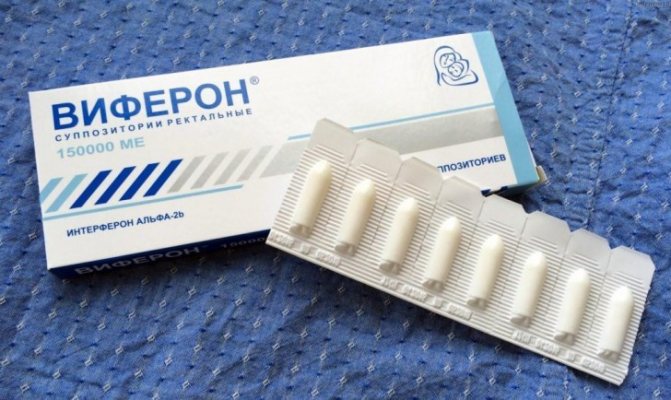
The basis of the drug is a protein such as interferon. The substance is produced naturally by the human body. When the level of production is low, the protective properties of the immune system drop, which leads to the development of the disease.
The drug is indicated as an antiviral and immunostimulating substance. Additionally enriched with vitamins and carotenes, which stimulate the body's protective functions. The product reduces the concentration of drugs prescribed for the treatment of colds, purifying the blood, protecting the body naturally. Prevention of recurrent laryngotracheobronchitis with stenosis is one of the indications for the use of the drug.
The mother’s body is especially weakened while feeding the baby and has suffered enormous overloads during pregnancy and childbirth. It works at high voltage and provides the baby with valuable substances and breast milk. The body systems of a nursing mother work somewhat differently: body temperature is slightly higher, breathing is faster.
Through milk, the baby receives a lot of nutritional and essential elements. Antibodies are passed through breast milk.
Drugs used during breastfeeding can actively affect the baby’s health. The issue of safety of treatments is becoming important. Medicines must be quite effective and safe for the mother and baby.
Use of Viferon during lactation
The prescription of the drug, selection of dosages, regimen and duration of treatment is carried out only by the attending physician. The required doses of the drug are selected individually. This is due to the nuances of the disease, the type of infection, and the condition of the body. Wherein:
- The ointment is applied to the affected skin four times a day. It is recommended to use the product when rashes appear. The course of treatment for herpes and human papillomavirus infection usually lasts from 5 to 7 days.
- The gel is used to lubricate the nasal passages during the cold season to prevent the development of the disease. The gel can be used as a prophylactic agent in children from birth.
- Viferon suppositories for breastfeeding are prescribed by a doctor as part of a comprehensive treatment. The appointment is carried out under the supervision of the attending physician.
Should I stop breastfeeding?
When assessing the possibility of using Viferon during breastfeeding (breastfeeding), women often worry about their newborn. Mothers want to know whether the medicine will worsen his health.
Viferon itself does not have a negative effect on the baby and is practically not excreted in breast milk. However, the drug is often prescribed in combination with other medications. They can be harmful to babies. It is necessary to clarify with the doctor the nuances of administration and the effect on the child.
If only Viferon is taken, feeding is not interrupted. Continuing lactation allows the baby to eat well. Important substances are transmitted with milk to enhance the baby’s immunity.
Weaning can negatively affect not only the child’s health, but also prolong the mother’s recovery process. This is partly due to the increased risk of complications.
There are no special rules for breastfeeding in case of infection with acute respiratory diseases. However, please note that milk:
- should not be expressed;
- there is no need to boil, thereby worsening its beneficial and nutritional properties.
Interruption of feeding is provided if it is necessary to take antibiotics and other potent medications. They can harm the child's body. In this case, you need to express, throwing away the milk. The baby is transferred to adapted formulas.
The baby’s health is interconnected with the mother’s health, since it is through milk that the baby consumes the nutrients he needs, which increase the body’s defenses.
Doctors' recommendations
Viferon suppositories are safe during lactation and have proven themselves in the treatment of both adults and children. The only contraindication to taking the drug is individual sensitivity to the constituent components, in most cases to cocoa. Its oil serves as the base for candles.
In order to prevent adverse reactions, the following rules should be followed:
- do not diagnose and treat yourself;
- seek help from a specialist;
- strictly follow the instructions and prescriptions of the attending physician.
If any unpleasant symptoms appear during treatment with Viferon, you should stop taking the medication and seek help from a specialist.
Viferon is sold in pharmacies without a doctor's prescription, but this does not mean that the drug can be taken uncontrolled, especially by nursing mothers. Self-medication can lead to adverse consequences. It should be remembered that in such a situation the mother puts not only herself, but also her child at risk.
The medicine should be stored in its packaging in the refrigerator. Under no circumstances should you use a drug that has expired.
Despite the effectiveness and safety of some medications, it should be remembered that it is easier to prevent a disease than to treat it. To prevent the occurrence of diseases, it is recommended:
- Eat nutritiously and properly, rest.
- Walk outdoors more often.
- Follow recommendations for the prevention of colds.
While breastfeeding, Viferon ointment or gel should not be applied to the breast area, nipple and areola.
Patient reviews
Reviews from women who took Viferon while breastfeeding are mostly positive. Patients note:
- the effectiveness of the drug against viral and infectious diseases;
- reduction of treatment time;
- improvement in condition after the first day of using the drug;
- in most cases, the medicine was easily tolerated, without causing any adverse reactions in either the mother or the child;
- effectiveness when the first signs of herpes and papillomas appear.
The advantage of the medicine is the possibility of its use for preventive purposes, in case of contact with a sick person or to prevent infection during the cold season. In most of these cases, infection did not occur or the disease proceeded in a fairly mild form.
However, you can also find negative reviews about the drug on the Internet. Some patients write that they did not notice any effect from using Viferon.
How to take for a nursing mother
If Viferon is used during lactation, the dosage and treatment regimen must be prescribed by a doctor, since they largely depend on the general condition of the body and the type of infection. Standard assignments look like this:
- In the complex treatment of uncomplicated acute respiratory viral infections, pneumonia and similar viral infections, as well as if their chlamydial etiology is suspected, suppositories are used in a dose of 150 thousand IU twice a day rectally. If necessary, the course of treatment can be repeated, but not earlier than after five to seven days.
- If Viferon is used in a hepatitis treatment regimen, preference should be given to suppositories of 3 million IU, taking them twice a day for 10 days. Then treatment continues - every other day, and so on for 6 - 12 months.
- Treatment of sexually transmitted pathologies localized to the cervix or vaginal mucosa is most often carried out with suppositories. The classic scheme includes a 10-day course of one suppository twice a day. The most commonly used dose is 1,000,000 IU. In case of recurrent pathology or for other indications, the course can be shortened or lengthened.
- If the affected areas are located on the skin and accessible mucous membranes, you can apply a thin layer of ointment up to 3-4 times a day. In this case, you can rub it a little into the lesions. The average duration of treatment is about a week.
- To prevent ARVI and influenza, you can apply ointment to the nasal mucosa during an epidemic or contact with a sick person.
It is noteworthy that Viferon (suppositories for lactation or ointment) can be simultaneously combined with other drugs and suppositories for the treatment of pathology. Interferon does not in any way reduce the effect of other drugs, but only helps the body fight infection even more actively.
Viferon does not reduce its own production of interferon, it does not cause addiction or other undesirable effects.
We recommend reading the article about antiviral drugs during lactation. From it you will learn about permitted and prohibited medications for a nursing mother, the effectiveness of homeopathic remedies, as well as the use of traditional medicine methods.
